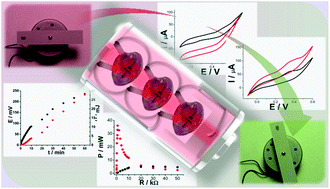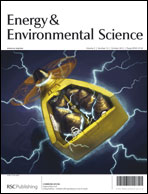Biofuel cells implanted in living clams and producing sustainable electrical power in vivo were integrated in batteries. The “electrified” clams, being biotechnological living “devices”, were able to generate electrical power using physiologically produced glucose as the fuel. The activity of the living batteries was dependent on the environmental conditions which are affecting physiological processes in clams. The living batteries generated open circuitry voltage (Voc), short circuitry current (Isc) and maximum power (Pmax) of ca. 800 mV, 25 μA, 5.2 μW and ca. 360 mV, 300 μA, 37 μW for the serial and parallel connections of 3 “electrified” clams, respectively. A clam-battery was connected to a capacitor which was charged up to 240 mV providing accumulation of electrical energy up to 28.8 mJ. Discharging the capacitor on an electrical motor resulted in the motor rotation. The “electrified” clams integrated in batteries demonstrated the possibility of activating electrical/electronic devices using energy produced in vivo.

You have access to this article
 Please wait while we load your content...
Something went wrong. Try again?
Please wait while we load your content...
Something went wrong. Try again?


 Please wait while we load your content...
Please wait while we load your content...